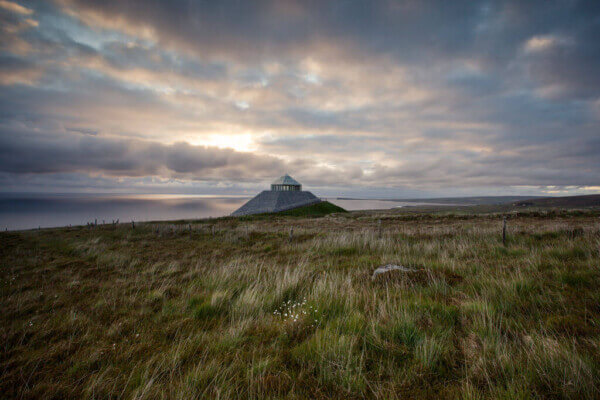The award-winning Céide Fields Visitor Center in County Mayo reopened in April 2022 following a refurbishment that includes a new exhibition and interpretation center.
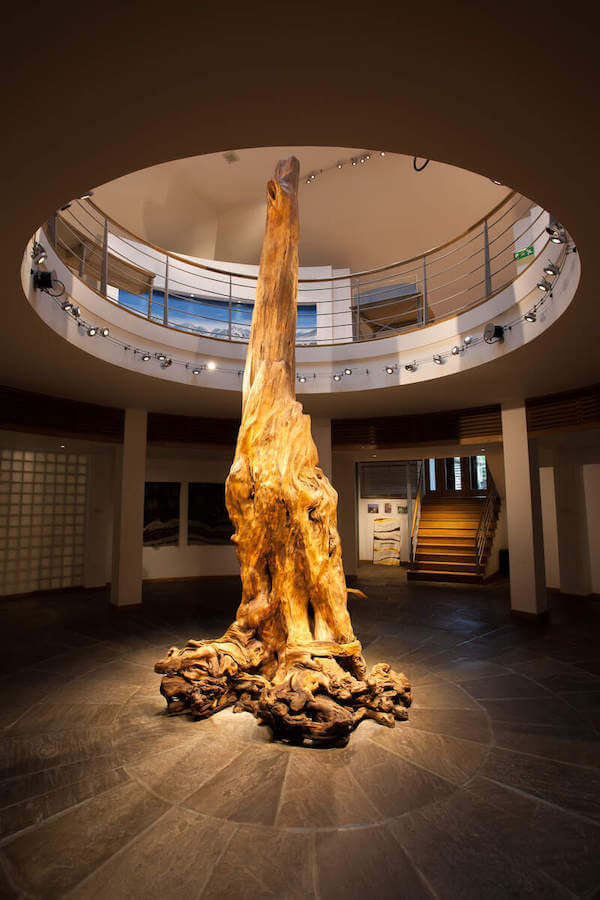
This news item contains affiliate links, and I may earn compensation when you click on the links at no additional cost to you.
The transformative work, which was funded by Ireland’s Office of Public Works, Failte Ireland, and the Dept. of Housing, Local Government and Heritage, uses state-of-the-art technology that will give visitors a greater insight into the oldest enclosed landscape in Europe, a complex with extensive remains of ancient field systems and ways of living.
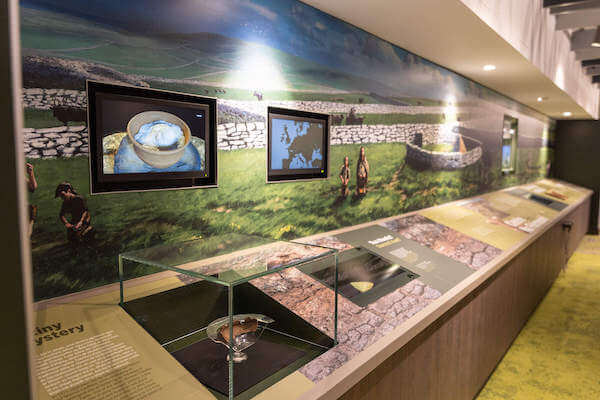
The highlight of the enhanced Céide Fields Visitor Center is a new immersive audio-visual experience that includes a virtual journey spanning thousands of years, from the hunter-gatherers who first appeared in the area to the present day.
The late Irish poet Seamus Heaney wrote about the Céide Fields in his poem “Belderrig,” describing it as a “landscape fossilized, its stone wall patternings repeated before our eyes in the stone wall of Mayo.”
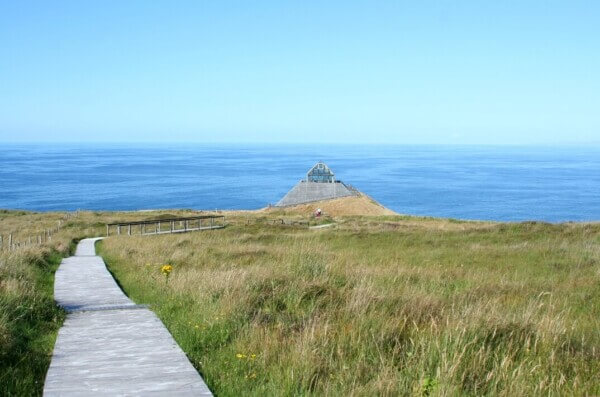
The archaeological site is the most extensive Neolithic site in Ireland and also contains the oldest field systems in the world, going back almost 6,000 years ago.
The site was covered under a blanket bog until the 1930s when a local schoolteacher noticed a pile of stones at the bottom of the bog while cutting turf.
Forty years later, his son, an archaeologist, would confirm what was really under the bog.
The revamped exhibition and interpretation center also includes artist reconstructions, videos, and replica artifacts, including the dramatic 4,000-year-old pine tree that was unearthed from the nearby bogland.
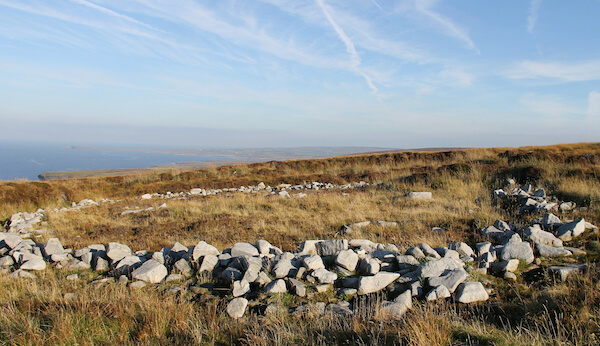
Visitors will be able to learn more about the geology, archaeology, botany, and wildlife of this unique Neolithic landscape, even learn how and why bogs are formed and the huge influence a subtle change in climate can bring about.
Guided tours are available.
Admission to the heritage site is €5 for adults, €4 for seniors, €3 for students and children, and €13 for a family.
Other Attractions Worth Seeing Near the Céide Fields
Some of the other worthwhile attractions close to the Céide Fields that are particularly suitable when visiting Ireland during the summer months include the following:
Belderrig Valley Experience
Visitors to the area can also learn even more about this wild, rugged landscape in County Mayo by taking a walking tour with Professor Seamus Caulfield, the son of the archaeologist who stumbled upon them.
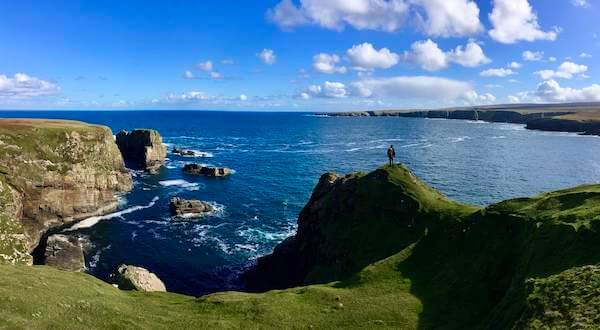
This fascinating walk unpacks the science, history, and folklore associated with the archaeological wonder.
Downpatrick Head
Downpatrick Head, otherwise known as “Dún Brist,” is a favorite attraction for tourists visiting North Mayo, and it’s easy to see why.
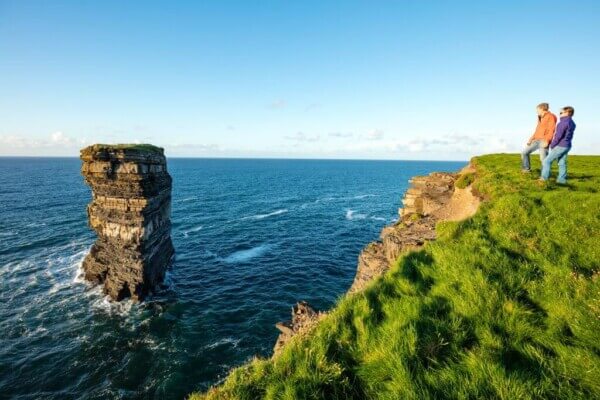
The giant sea stack, which is situated a little way from the coastline, stands 150 feet tall (45 meters).
The cliffs in this area of County Mayo were created around 350 million years ago when the ocean was much warmer.
Despite the many legends that have been told about its formation, the most valid explanation is that an arch leading to the stack broke away during a violent storm in 1393.
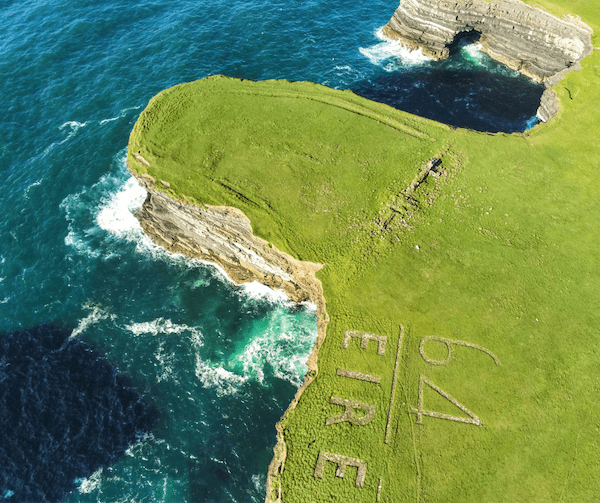
Not far from Downpatrick Head is an old watchtower as well as an “Eire 64” sign, one of several such markers located around the Irish coastline that alerted pilots flying overhead during World War II that they had reached Ireland — and neutral territory.
The 10 Best County Mayo/Galway Tours for 2023
The Blanemore Forest Archaeological Walk
The Céide Fields isn’t the only Neolithic farming settlement to be uncovered in North Mayo.
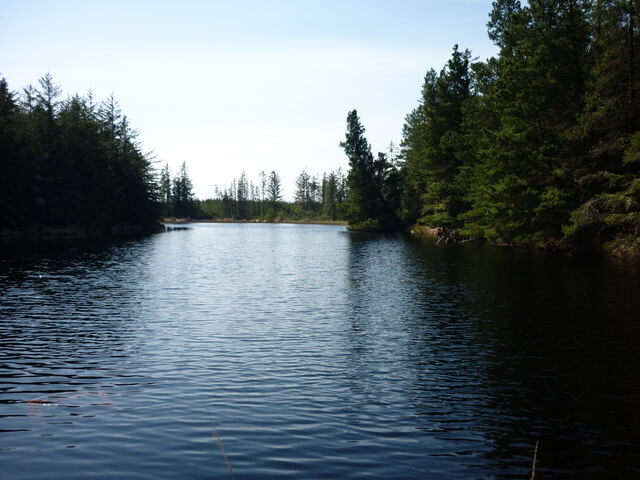
The Blanemore Forest is another one.
Similar to the Céide Fields site, the community in what is now the Blanemore Forest flourished here for 500 years before the climate changed to a wetter one.
Archaeologists believe that the settlement was abandoned around 3,250 B.C.
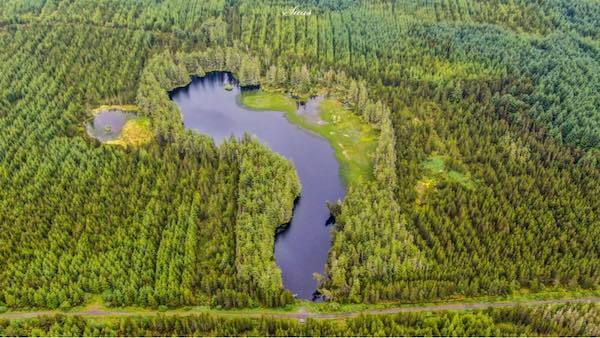
Today, a raised boardwalk will lead you through this forest walk, where sacred tombs, standing stones, and field walls, among other amazing artifacts, are waiting to be discovered.
Signs have been strategically placed along the route to explain the significance of the ancient artifacts.
The walk is currently closed for 8-10 weeks to facilitate the felling and safe extraction of timber from the area.
Download the guide here.

